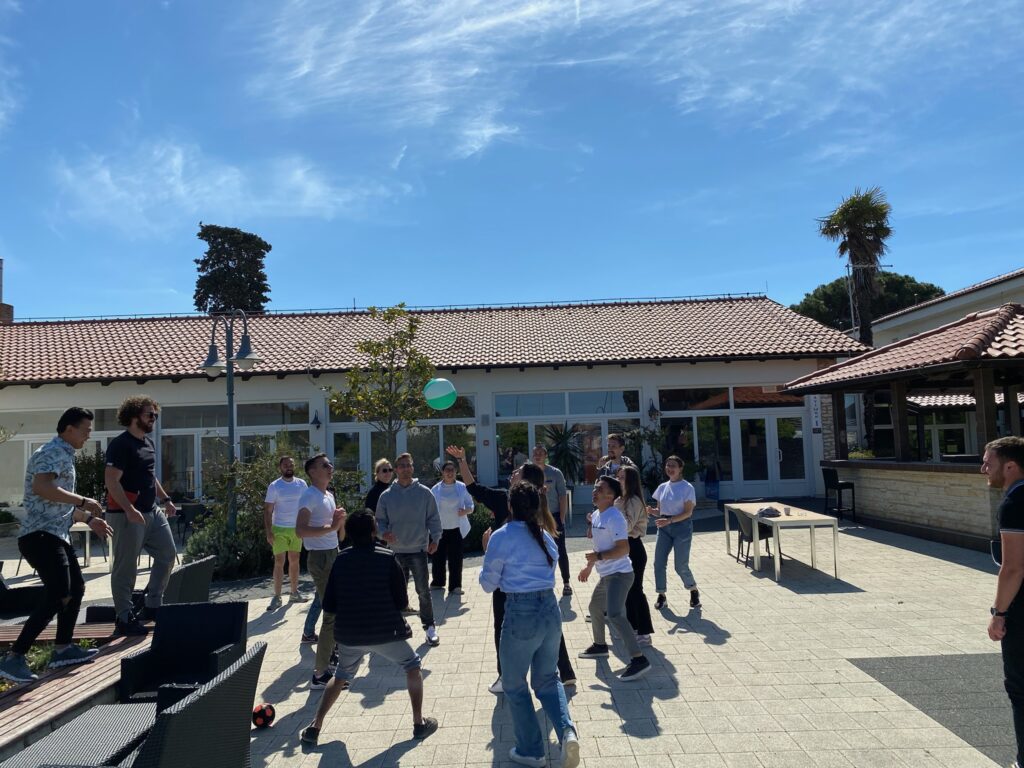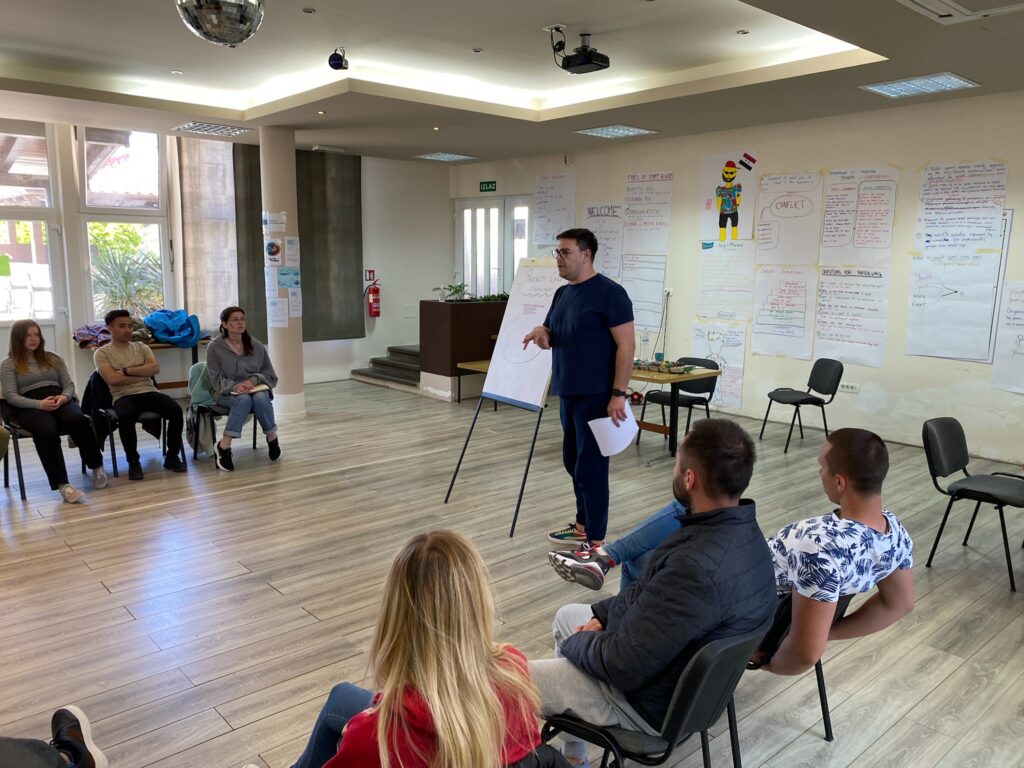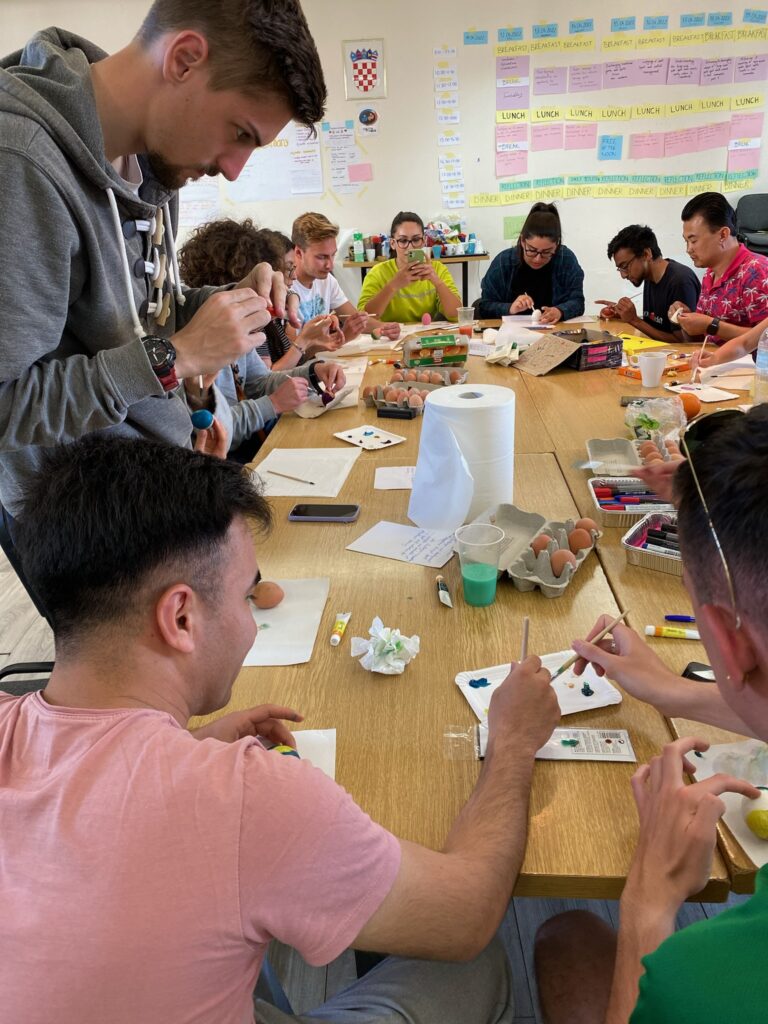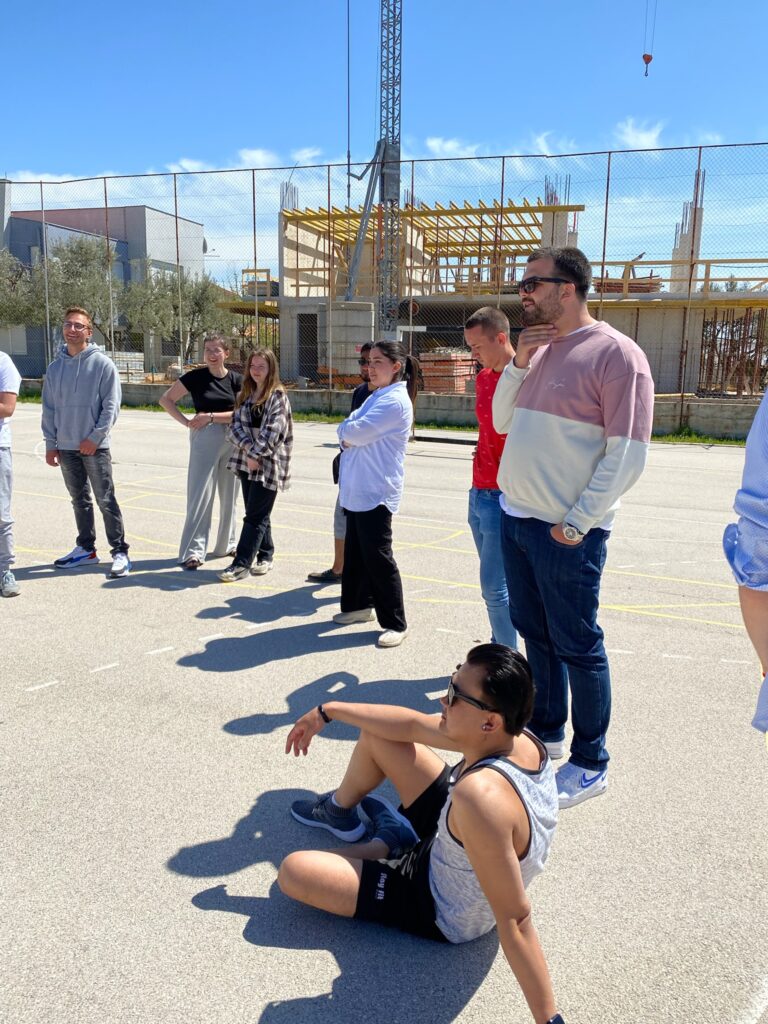Just after we finished with one training course, we immediately began with another one. “Large-scale youth sport work events for inclusion of immigrants and asylum seekers” training course took place in Zadar, between April 10 – 20, with participants from various European countries such as Croatia, Germany, Serbia, Slovak Republic and Sweden. This training course had the main goal to promote the approach of using sport and sports games as a learning tool for organising large scale events for immigrants and asylum seekers.

Training course started by getting to know each other, talking about NGOs and country realities on social inclusion through sports. It started all with educational workshop related to non – formal education with the highlight of non – formal education as an opportunity for inclusion. Participants talked about intercultural learning, dialogue and acceptance. They exchanged traditional games and sports from their countries, discussed challenges and development of social inclusion through sports and they did a two-part “Envisioning and developing concept of large-scale youth sport work events in local communities” workshop. Training course was concluded with a YouthPass ceremony.

One of the activities was an intercultural evening where participants had an opportunity to present their countries, cultures, traditions, food, and drinks through interactive games or presentations.
The whole training course was based on non-formal education and learning by doing methods.

Objectives of the Training Course were:
- To share existing realities in local communities and countries of partner organizations regarding the inclusion of immigrants and asylum seekers
- To define and understand the concept of “large-scale youth sport work events” and raise competencies of youth workers in creativity for these events
- To share and understand challenges in the implementation of quality sport methods in youth work for inclusion and intercultural acceptance of immigrants
- To build capacities of currently active youth workers in our partner organizations in using sport and non-formal education methods and activities
- To discuss and understand basic concepts, values, and principles of inclusion and intercultural learning

